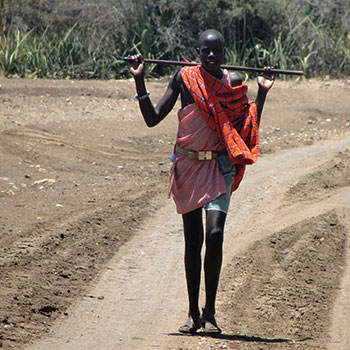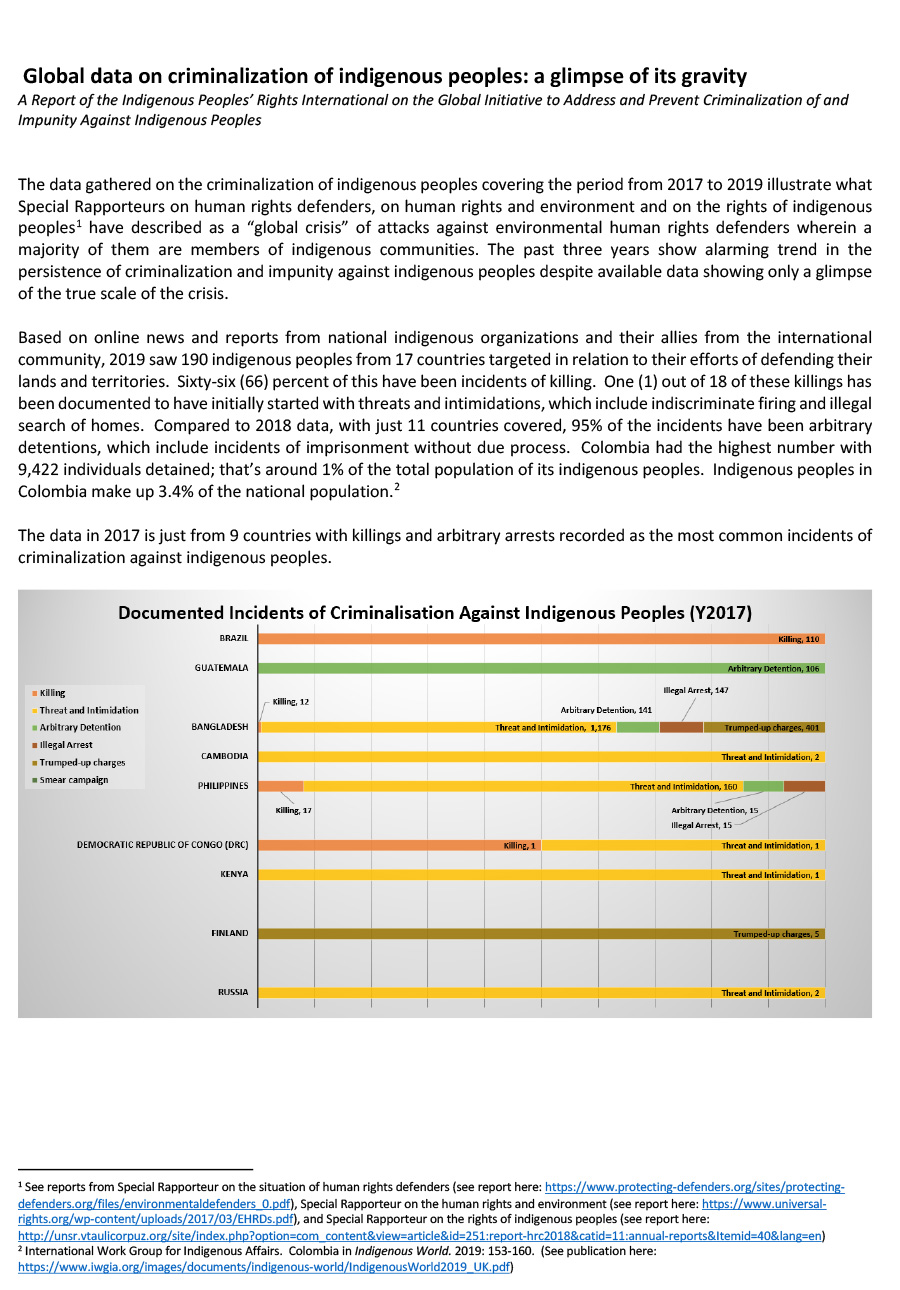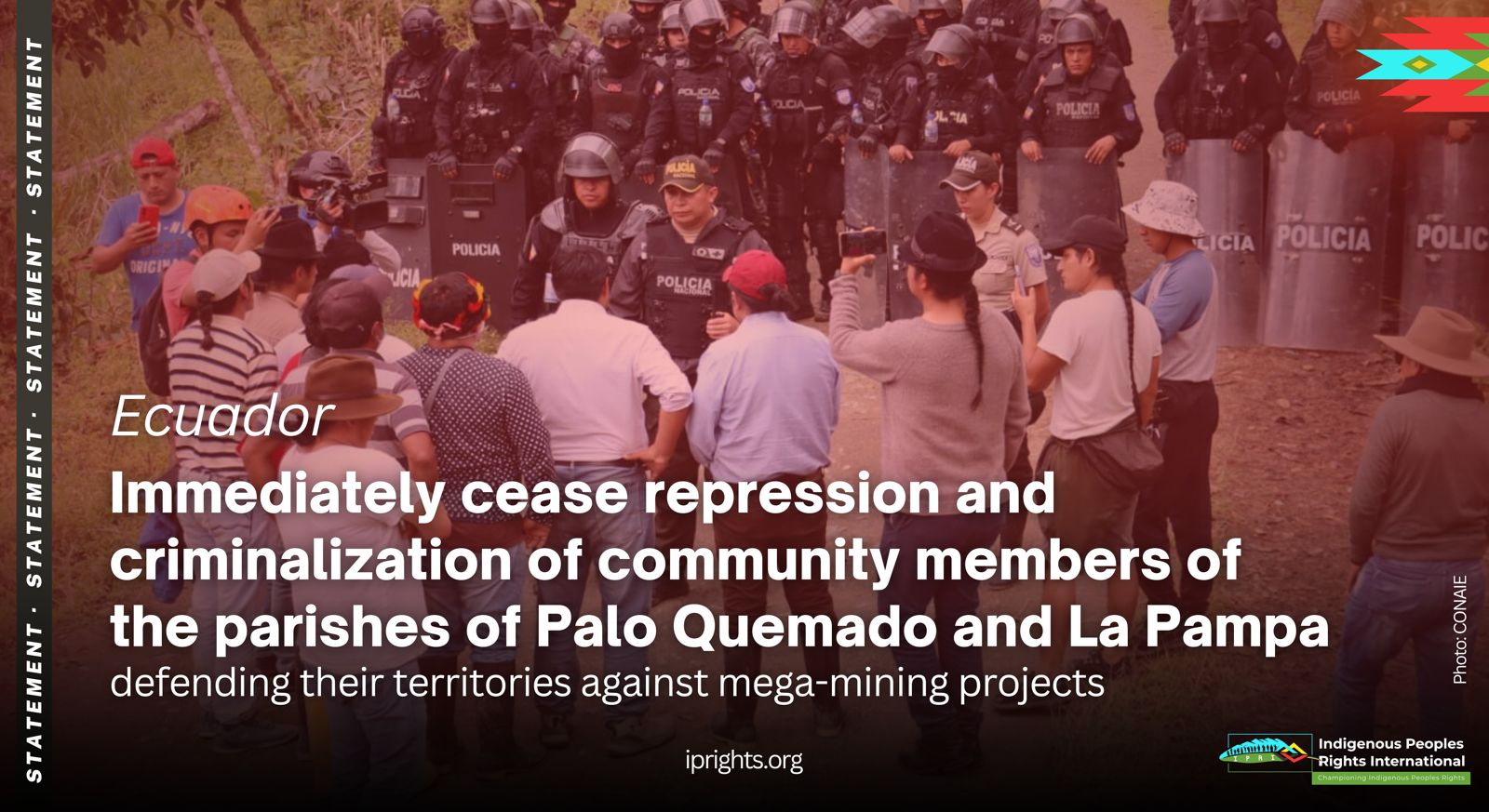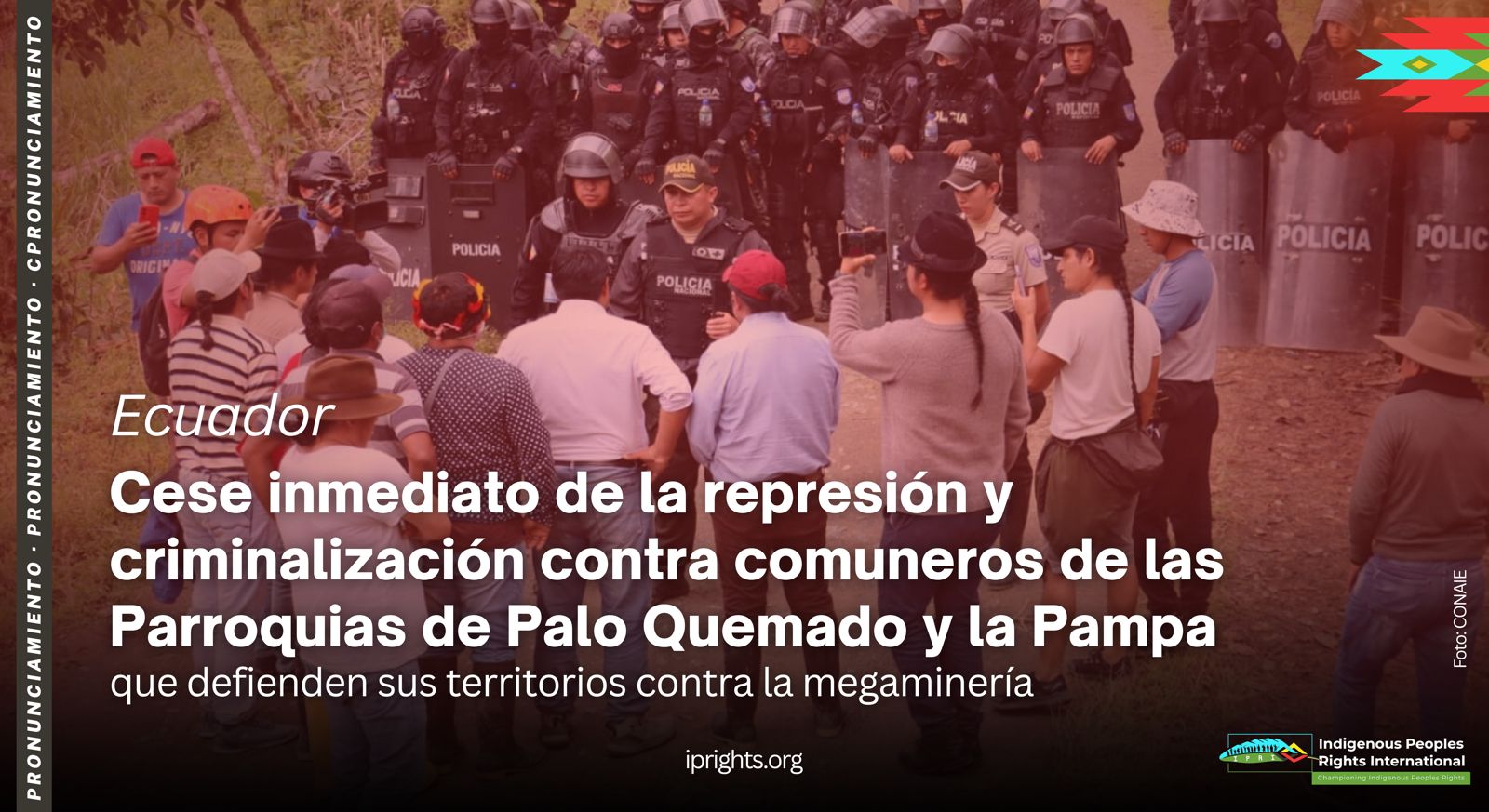A Report of the Indigenous Peoples’ Rights International on the Global Initiative to Address and Prevent Criminalization of and Impunity Against Indigenous Peoples
 The data gathered on the criminalization of indigenous peoples covering the period from 2017 to 2019 illustrate what Special Rapporteurs on human rights defenders, on human rights and environment and on the rights of indigenous peoples have described as a “global crisis” of attacks against environmental human rights defenders wherein a majority of them are members of indigenous communities. The past three years show alarming trend in the persistence of criminalization and impunity against indigenous peoples despite available data showing only a glimpse of the true scale of the crisis.
The data gathered on the criminalization of indigenous peoples covering the period from 2017 to 2019 illustrate what Special Rapporteurs on human rights defenders, on human rights and environment and on the rights of indigenous peoples have described as a “global crisis” of attacks against environmental human rights defenders wherein a majority of them are members of indigenous communities. The past three years show alarming trend in the persistence of criminalization and impunity against indigenous peoples despite available data showing only a glimpse of the true scale of the crisis.
Based on online news and reports from national indigenous organizations and their allies from the international community, 2019 saw 190 indigenous peoples from 17 countries targeted in relation to their efforts of defending their lands and territories. Sixty-six (66) percent of this have been incidents of killing. One (1) out of 18 of these killings has been documented to have initially started with threats and intimidations, which include indiscriminate firing and illegal search of homes. Compared to 2018 data, with just 11 countries covered, 95% of the incidents have been arbitrary detentions, which include incidents of imprisonment without due process. Colombia had the highest number with 9,422 individuals detained; that’s around 1% of the total population of its indigenous peoples. Indigenous peoples in Colombia make up 3.4% of the national population.
The following organizations have shared information that made this report possible:
- Arctic Consult
- Cambodia Indigenous Peoples Alliance (CIPA)
- Forest Peoples Programme (FPP)
- Indigenous Peoples Major Group for Sustainable Development (IPMG)
- International Work Group for Indigenous Affairs (IWGIA)
- Kapaeeng Foundation
- Katribu
- Organizacion Nacional Indigena de Colombia (ONIC)/National Indigenous Organisation of Colombia
- Philippine Task Force for Indigenous Peoples (TFIP)
- Save the Lumad Schools Network
- Tebtebba





